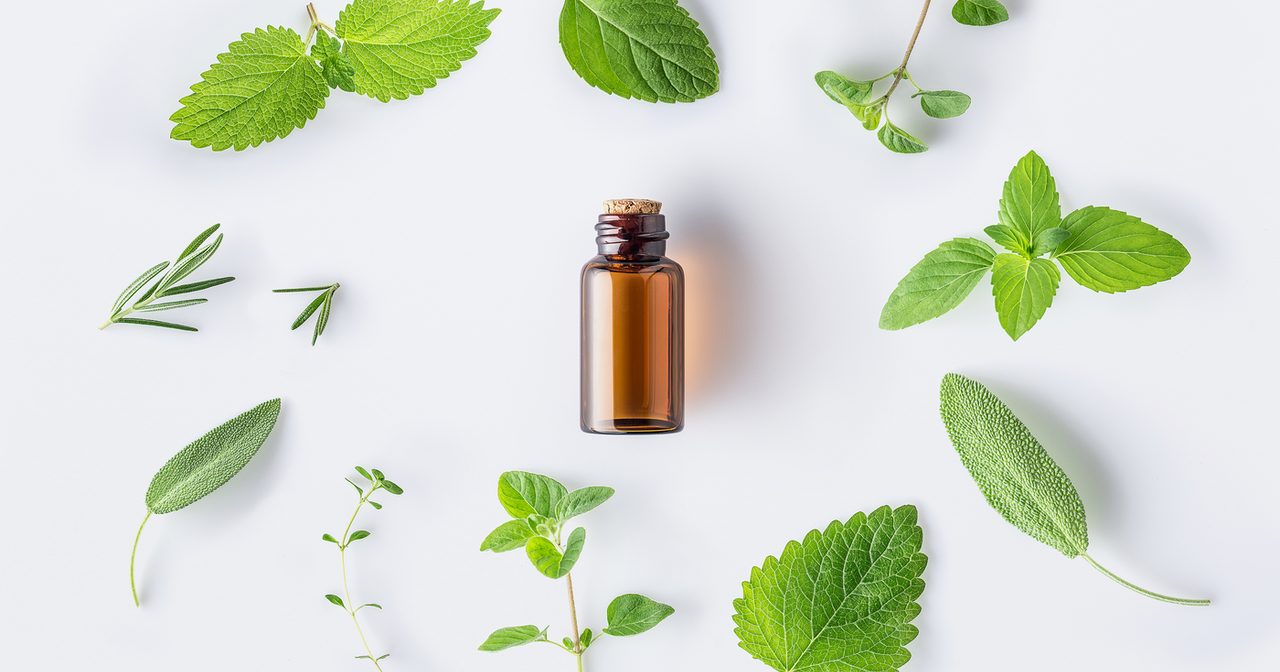Listen on: Apple Podcasts | Spotify
A few years ago, essential oil posts seemed to be all over the internet. Pinterest boards, news feeds, and blogs were filled with claims about the use of essential oils. Today, the online buzz about essential oils seems to have quieted down. Have they lost their hype?
Essential oils are not drugs.
In the natural products industry, which essential oils are a part of, attaching a drug claim to a product is a major no-no.
It’s an especially-big-no-no if you attach a drug claim to a product that you sell.
The two largest essential oil companies happen to be network marketing companies.
If you are a “member” of one of these companies, which we proudly are, you might be thinking, “But I don’t sell essential oils, I just share my experience with them.”
Sharing, selling. It’s the same thing. If you have the potential to earn a commission from someone buying essential oils based on your claims, this applies to you.
You might also be thinking, “I have the freedom of speech. I can say whatever I want.”
Provided you’re not slandering another person or brand, and you’re not saying something about a product that you can profit from, you’re correct.
If you have the opportunity to make money from what you say, the FDA and Federal Trade Commission (FTC) do get to regulate it.
This is for our protection as consumers.
What is considered a drug, or a drug claim?
While there are many good companies in the natural products industry, there are plenty who would set safety and efficacy aside, in exchange for a profit by making inflated claims.
The FDA and FTC help minimize the chance of that happening.
So, what exactly does the FDA consider a drug? This is their definition:
Articles intended for use in the diagnosis, cure, mitigation, treatment, or prevention of disease.
They also add:
Articles (other than food) intended to affect the structure of any function of the body of man or other animals.
For example, research shows that red yeast rice may reduce cholesterol.
However, stating that red yeast rice “lowers cholesterol” is a drug claim. Lipitor can stay that. But a supplement company that sells red yeast rice cannot. They’d be limited to a claim such as, “Red yeast rice may help maintain normal cholesterol levels.”
Unless a company has conducted double-blind placebo-controlled studies with their ingredient, and has red yeast rice approved as a drug, they cannot make the “reduces cholesterol” claim.
A drug treats or prevents disease. A dietary supplement may help maintain a state of health.
Drug Claim: “Red yeast rice reduces cholesterol levels.”
Health Claim: “Red yeast rice may help maintain normal cholesterol levels.”
But not all essential oils are supplements, so what does this mean?
According to the FDA, essential oils can be used as a household product, a cosmetic, or a dietary supplement. In fact, the same essential oil might be used all three ways.
Essential oils as a household product.
Using essential oils in a diffuser would be considered by the FDA the same as burning a candle or using an air freshener. Yes, there is plenty of research that shows essential oils support a state of health when inhaled, but diffusing essential oils is technically using them as a household product.
Household products do not have health benefits.
Essential oils as a cosmetic.
Essential oils might also be used as a cosmetic. The FDA defines a cosmetic as:
Articles intended to be rubbed, poured, sprinkled, or sprayed on, introduced into, or otherwise applied to the human body…for cleansing, beautifying, promoting attractiveness, or altering the appearance.
Again, there is research that shows some essential oils may have health benefits when applied topically, but outside of drugs, topical products are not allowed to carry health claims.
Essential oils are considered by the FDA to be a cosmetic when they are used topically. They smell nice and may make us pretty. Cosmetics do not have health benefits.
Essential oils as a dietary supplement.
Finally, some essential oils can be taken internally. But, if they are sold and marketed for internal use, they must be labeled as dietary supplements.
A dietary supplement, according to the FDA is:
A product intended for ingestion that contains a ‘dietary ingredient’ intended to add further nutritional value to (supplement) the diet. A ‘dietary ingredient’ may be one, or any combination, of the following substances: a vitamin, a mineral, an herb or other botanical, an amino acid, a dietary substance for use by people to supplement the diet by increasing the total dietary intake, or a concentrate, metabolite, constituent, or extract.
The FDA does allow certain claims to be used with dietary supplements including essential oils that are labeled as such. For example, they might “support or maintain optimal health” or “support normal levels of inflammation.”
It may also be possible for a product with essential oils in it, to promote a drug claim.
For example, Young Living’s Cool Azul Pain Relief Cream states that it, “Temporarily relieves minors aches and pains of muscles and joints associated with simple backache, arthritis, strains, bruises, and sprains.”
This claim is allowed because the product contains methyl salicylate and menthol, two constituents the FDA has pre-approved as drug ingredients.
While Cool Azul Pain Relief Cream also contains a number of essential oils, it’s the two pre-approved ingredients that allow the product to carry a drug claim.
Essential oils can be used aromatically, topically, and internally.
When marketing essential oils for use as a household product (aromatic) or cosmetic (topical) they cannot have health claims or drug claims associated with them. Essential oils labeled as dietary supplements (internal) can be marketed with health claims but not drug claims.
Products with essential oils in them, that also contain ingredients pre-approved by the FDA as drugs, can have a drug claim.
Read also: Essential Oils For Fitness: Research, Anecdotal Evidence, Experimentation.
What about mental and spiritual well-being?
The inhalation of essential oils can have an effect on the limbic system of the brain. This area of the brain supports a variety of functions, including emotion, behavior, motivation, and memory.
The FDA seems to be okay with suggesting an essential oil can help with mental focus, feelings of calm, supporting meditation, etc. Though these statements don’t sound overly exciting, they’re very important.
If the inhalation of essential oils can help someone focus and feel more calm, it might help them gain better control over their decision making, especially when it comes to lifestyle choices, much of which influence one’s health.
Now, back to the hype and where it went.
There is plenty of evidence to show that essential oils work, if you want to learn more about them, instead of relying on social media, pick up a book, or read some of the research.
Open a web browser and go to PubMed and search aromatherapy or essential oils. There are thousands of research papers to keep you entertained.
I have read over 250 research papers on the use of essential oils and use them daily – aromatically, topically, and internally. I know essential oils work as I have experimented with their use for over two years and my health has improved because of it.
That said, because those marketing essential oils cannot point out many of the compelling, well-researched benefits of inhaling essential oils or using them topically in the same place they sell those products, you just don’t see people promoting them like they once did.
It’s not that the oils are less effective. It’s just that people selling them have to play by the rules of the FDA and FTC.



